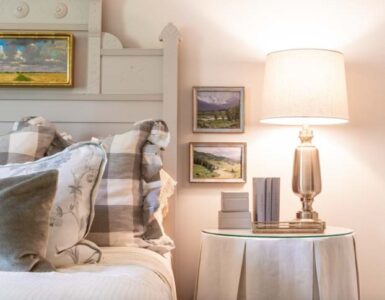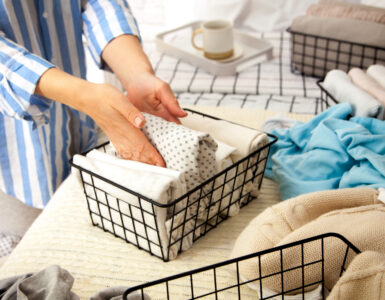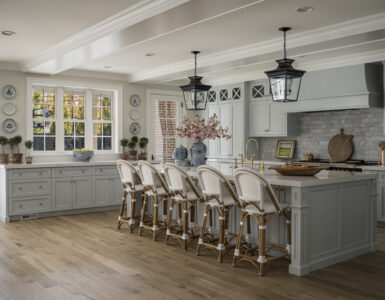Presenter: Teresa C. Hunsaker
USU Extension
Weber County
Family and Consumer Science Educator
Spring is here and thus begins the big undertaking of “spring cleaning”. What product do you use for what job? How do you know if the expensive ones are going to do a better job for you? Are all of these products really necessary to begin with?
Let’s learn how, with 5 basic and common ingredients, we can clean practically anything for a fraction of the cost.
Baking Soda is sodium bicarbonate. It has a number of useful properties. It can neutralize acid, scrub shiny materials without scratching, deodorize, and extinguish grease fires. It can be used as a deodorizer in the refrigerator, on smelly carpets, on upholstery and on vinyl. It can help deodorize drains. It can clean and polish aluminum, chrome, jewelry, plastic, porcelain, silver, stainless steel, and tin. It also softens fabrics and removes certain stains. Baking soda can soften hard water and makes a relaxing bath time soak; it can be used as an underarm deodorant and also a toothpaste.
Borax is a naturally occurring mineral, soluble in water. It can deodorize, inhibit the growth of mildew and mold, boost the cleaning power of soap or detergent, remove stains, and can be used with attractants such as sugar to kill cockroaches. Odor producing mold and bacteria in garbage cans: sprinkle 1/2 cup Borax in the bottom of the garbage can.
Vinegar can dissolve mineral deposits, grease, remove traces of soap, remove mildew or wax buildup, polish some metals, and deodorize. Vinegar can clean brick or stone, and is an ingredient in some natural carpet cleaning recipes. Use vinegar to clean out the metallic taste in coffeepots and to shine windows without streaking. Use pure vinegar in the toilet bowl to get rid of rings. Flush the toilet to allow the water level to go down. Pour the undiluted vinegar around the inside of the rim. Scrub down the bowl. Mop the flour in the bathroom with a vinegar/water solution. Vinegar is normally used in a solution with water, but it can be used straight for some cleaning. For more effective dishwashing, add a few tablespoons of vinegar along with the dishwashing detergent when washing dishes. The vinegar cuts the grease and leaves dishes sparkling. Improperly diluted vinegar is acidic and can eat away at tile grout. Never use vinegar on marble surfaces. Lemon juice could be substituted in some cases, with the same precautions as for vinegar. To remove perspiration stains in clothing, soak in warm vinegar and water.
Isopropyl Alcohol is an excellent disinfectant. Used for cleaning electronic devices such as contact pins (like those on ROM cartridges), magnetic tape deck and floppy disk drive heads, the lenses of lasers in optical disc drives (e.g. CD, DVD) and removing thermal paste from CPUs. It is also used to clean LCD and glass computer monitor screens (at some risk to the anti-reflection coating of the screen), and used by many music shops to give second-hand or worn records newer looking sheens. It cleans dry-erase boards very well and other unwanted ink related marks. Don’t buy special cleaners to get out baby formula stains, use a little isopropyl alcohol on the stain, then a regular detergent worked in. Works like a charm. Use an alcohol(isopropyl)/water solution for cleaning mirrors or chrome: 1 part alcohol to 4 parts water.
Liquid Soap, not detergent, is a great cleaner, but sometimes hard to find, so use a liquid hand dishwashing detergent like Dawn or Joy.
If you buy a separate cleaner for every cleaning job you have, from counters to tubs, carpets to windows, from polishing floors to dusting you can really take a chunk out of the family budget. Besides all the perfumes, chemical fumes, and possible dangerous effects the commercial cleaners may have—these homemade versions are much more environmentally friendly.
Here is a recipe for an All Purpose Cleaner.
You’ll need:
a sturdy spray bottle
1/4 cup white vinegar
2 teaspoons Borax
1/4 cup liquid soap
32 ounces hot water
20 drops lavender essential oil (or other if desired)*
Mix vinegar and Borax together. Add this and warm (not hot) water to bottle and shake until mixed well. Add liquid soap and lavender essential oil. Smells great! Spray and wipe with a paper towel or, keep a container of inexpensive, non-scented baby wipes in the bathroom for “disposable” cleaning wipes used with this miracle spray. A fraction of the cost of other cleaning wipes. Lavender is antimicrobial, antifungal, and antibacterial naturally.















Add comment